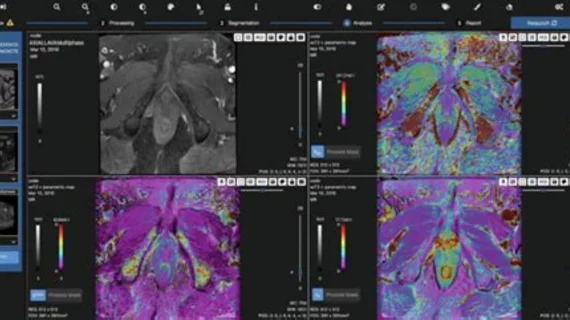Philips, Quibim integrate for AI-powered prostate cancer diagnosis
Technology giant Philips and cloud-based medical imaging servicer Quibim are teaming up to improve the diagnosis and treatment of prostate cancer by developing a new care management platform, created through the integration of Philips MRIs and Quibim’s QP-Prostate, an image management and reporting platform powered by artificial intelligence.
According to a statement on the multi-year partnership, Philips and Quibim aim to unite their technologies to automate prostate gland segmentation in MRI reports, standardizing reporting while highlighting clinically relevant insights a provider needs to make an accurate diagnosis. The goal is to enhance diagnostic confidence and personalized treatment for patients.
Currently, early detection of prostate cancer primarily relies on PSA screening tests, which can yield false positives, leading to unnecessary and painful biopsies. MRI exams, although more expensive and time-consuming, have shown promise in reducing unnecessary biopsies, guiding treatment decisions, and improving diagnostic accuracy.
“Because of its strong sensitivity to aggressive tumors, MRI has become the cornerstone of the prostate cancer diagnostic pathway. We now need to improve its specificity to avoid unnecessary biopsies, and its inter-reader reproducibility to allow reliable diagnoses outside of expert centers,” Oliver Rouvière, MD, PhD, head of radiology at Hôpital Edouard Herriot in Lyon, France said in the same statement. “Two of the biggest challenges facing any AI software dedicated to prostate MRI include the ability to demonstrate good specificity while maintaining a high level of sensitivity. Above all, we need to deliver robust diagnostic outcomes across different imaging protocols, magnetic field strengths and vendors.”
Through their collaboration, Philips and Quibim also say they aim to address snags caused by staff shortages through AI automation, particularly through easy sharing and evaluation of MRI reports. The goal is to ultimately streamline the diagnostic process so treatment can be delivered in a more timely manner to those patients diagnosed with prostate cancer. This ideally would also bring cost savings to hospital radiology departments.
Philips MRI solutions and Quibim’s QP-Prostate software will be demonstrated in the Philips booth (#6730) and the Quibim Booth (#6336) at the Radiological Society of North America Annual Meeting in Chicago, happening Nov. 26-29.

